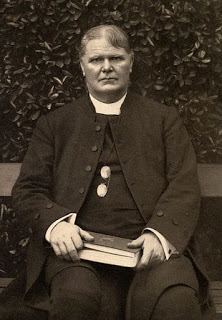“Check to the Bishop.”

Bishop Welldon is very amusing: he asks ridiculous questions and raises a laugh—against himself ! As witness the following :
“What can be more ridiculous amongst the Labour parties than that the very men who clamour for the abolition of international warfare should be the first and foremost to declare industrial warfare by striking again and again for increases of wages.
“If arbitration is the proper means of settling disputes among nations it must be the proper means among classes too. If the hope of civilisation lies in the League of Nations, is there no hope in, no need of, a league of classes?”-“Daily News,” 25.8.20.
Like most of the men in clerical camps, he suffers from confusion of ideas when he deals with economics and politics.
There is one thing, though, that he has learned, namely, that THERE ARE CLASSES in our present day society.
That is a good basis from which to investigate the composition of the social structure ; it will lead him to understand why there is a class division, and may possibly lead him to understand the principles of Socialism.
The bishop speaks of the Labour parties, by which I take it he means the whole of the various groups supposed to represent the interest of the working class, as though their two mentioned activities were inconsistent and absurd. They are: (1) clamouring for the abolition of international warfare; (2) declaring industrial warfare by striking again and again for increases of wages.
These things are quite understandable, for the first, international warfare, means that it is working class who have to wage war on behalf of the master class, and have to risk physical and mental ruin, and death itself, for the war-making capitalists.
They have to destroy in warfare, the workers of other countries, who are similarly pitted against them.
The workers of all lands are wage slaves. They have the same miserable lot, of whatever race they may be. Also, let Bishop Welldon understand, they have one common foe—the capitalist class the world over.
And bishops, whether well done or only half baked, generally can be relied upon to back up the latter most religiously.
With regard to the workers “declaring industrial warfare by striking again and again for increases of wages,” it would be well for the Bishop to grasp the fact that, so long as the wages system continues there will be strife between those who own the means of wealth-production and those who operate those means for wages.
The workers are only allowed access to the instruments of labour in order that they may produce more wealth than they have returned to them in the form of wages, hence they are exploited—robbed. And as a natural consequence they try to lessen the extent of that exploitation by struggling for increases of wages. Even a bishop would do the same.
And the strike—the withholding of our labour-power—to gain a tiny advantage is one of the weapons that labour is self-defensively compelled to use. The employers, on their part, make war on labour—generally with success. They “speed up” production on the one hand, and on the other eliminate wherever possible anything that threatens their chance of extracting surplus-value from the economically forced labour of their slaves.
But bishops, as a rule, don’t see that side of the shield. They want the wheels of industry running smoothly so that Rent, Interest, and Profit shall be assured to the class to which they belong. And they supply the oil of admonition in order to keep the workers docile, diligent, and contented in the position in which “Providence” places them.
What we of the Socialist Party have to declare stoutly is that the working class don’t go for the root of the matter—only the Socialists do.
We of the S.P.G.B. are out for the abolition of the wages system—the result of the private ownership of the means of life. We want the workers to grip the fact that it is just this— the way in which these means are used against our class by our exploiters—that causes all the misery.
We desire the overthrow of the capitalist system, and in its place the establishment of Socialism. Then production for the use of all will take the place of the pernicious production for the profit of a few, and a new and splendid era will open up for mankind.
Mere clamour against international warfare will not prevent its occurrence. War after war will and must be waged while capitalism lasts. Why? Because under capitalism it is the conflict of capitalist groups that starts the war machinery, and the battle field is the arena where is decided what fails to be decided in the political ring.
The Bishop thinks highly of arbitration. He considers that if it is the proper means among nations it must be the proper means among classes too.
Let it be said right here that we of the S.P.G.B. say the day of arbitration is long past.
We wage war against CAPITALISM, and therefore are out to rid the earth of it. We look on it as the social upas-tree, whose very shade is blighting !
And the world’s workers, when they are educated in economics and Socialist principles, and organised for the capture of political power, will soon annihilate it root and branch.
There is no hope for a capitalist-formed “League of Nations”: thieves who quarrel over the commercial “swag” once will quarrel over it again !
There is no hope of a “league of classes. ” The Bishop, if he thinks, must admit it to be “ridiculous.”
We want the abolition of the system causing the class division. We desire the speedy overthrow of the bloody system that is built up out working-class slavery and exploitation.
We are out for SOCIALISM !
Graham May
